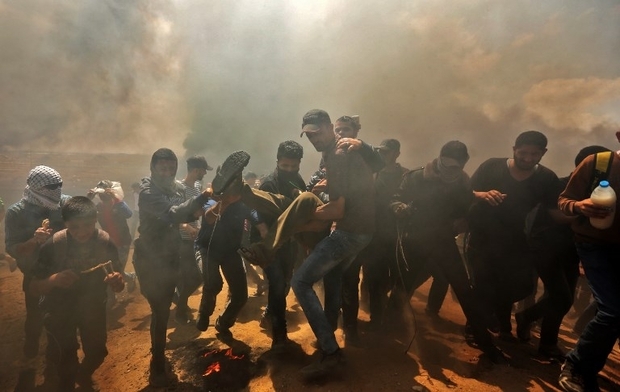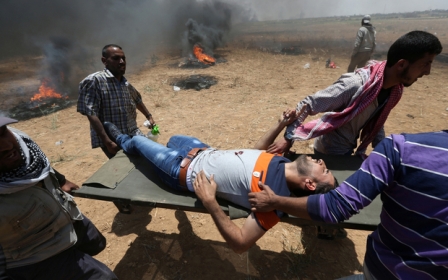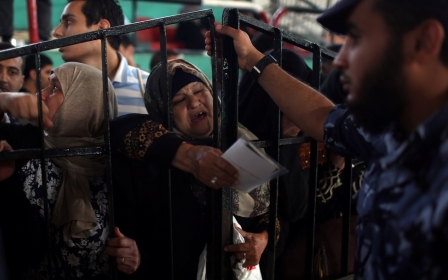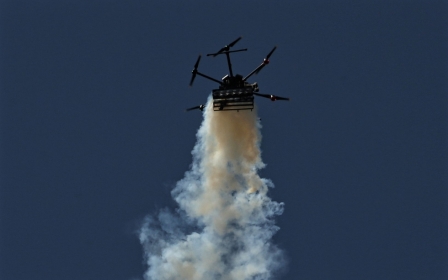UN to investigate possible Israeli war crimes after Gaza massacre
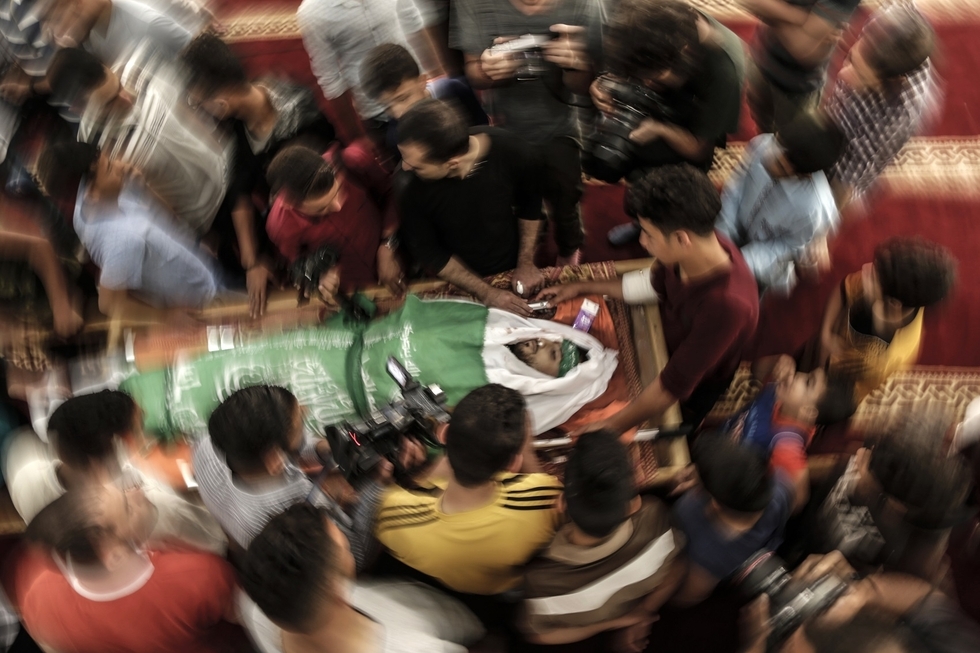
The United Nations Human Rights Council voted on Friday to assign international war crimes investigators to look into Israel's response to Palestinian protests that have seen 110 Palestinians killed in recent weeks.
After a special session called in response to the deadliest day of protests on Monday, when 60 Palestinians were killed, the resolution was supported by 29 countries, with only the US and Australia voting against. Fourteen countries abstained, including Britain and Germany.
Israel promptly criticised the decision made by the council, which it has in the past frequently accused of being biased against it.
"Simply put, with this resolution, this council has reached a new height of hypocrisy, and the lowest standards of credibility!" tweeted Israeli Ambassador to the UN in Geneva Aviva Raz Shechter.
During the session, UN human rights chief Zeid Raad al-Hussein condemned Israel for its systematic abuse of Palestinians, including 1.9 million "caged in a toxic slum from birth to death" in Gaza, as he voiced his support for an independent inquiry into the killings.
End the occupation, and the violence and insecurity will largely disappear
- Zeid Raad al-Hussein, UN human rights chief
"Nobody has been made safer by the horrific events of the past week," he told the meeting in Geneva. "End the occupation, and the violence and insecurity will largely disappear."
Israel and the US rejected the calls for an investigation, prompted after a deadly response to protests on Monday took the number of Palestinians killed since protests started on 30 March to more than 110.
“The stark contrast in casualties on both sides is also suggestive of a wholly disproportionate response,” Hussein said in supporting the call for an investigation.
He also rejected Israeli justification for its use of force because some protesters tried to breach its security fence on Gaza's perimeter while others directed stones and burning kites at Israeli troops.
"Killing resulting from the unlawful use of force by an occupying power may also constitute wilful killings, a grave breach of the Fourth Geneva Convention."
Israel defends use of force
Israel has justified the use of sniper fire, which contributed significantly to more than 12,000 injuries, by arguing that Hamas organised the protests as cover to attack Israel.
Shechter claimed Israeli forces had tried to minimise casualties, and accused Hamas of using the protesters as human shields.
Shechter said the UN rights council had returned to its "worst form of anti-Israel obsession".
"This special session, the resolution before you, and its call for a commission of inquiry are yet again politically motivated and won't change the situation on the ground by even one iota," she said.
The scale of violence is quite small compared to the worst human rights situations around the world
- Theodore Allegra, US envoy to UN rights council
The US adopted Israel’s position, calling the call for an investigation “one-sided” and repeating the Trump administration’s position that the Human Rights Council has a disproportionate focus on alleged Israeli abuses.
“The scale of violence is quite small compared to the worst human rights situations around the world,” said US envoy, Theodore Allegra.
Speaking at an emergency summit meeting of the Organisation of Islamic Cooperation held on Friday in Istanbul, Turkish President Recep Tayyip Erdogan said he will take the events in Gaza to the UN General Assembly.
"Israel must certainly be held accountable for the innocent people it has massacred in front of international law," he said.
At the same meeting, Turkish Foreign Minister Mevlut Cavusoglu said other countries should not follow the US example of moving their embassies to Jerusalem - seen as recognition of the city as Israel’s capital despite its disputed status.
Turkey and Israel have become embroiled in a diplomatic row over Monday’s killings after both countries expelled their respective envoys.
At the end of March, Palestinians in Gaza launched the Great March of Return, a series of weekly protests along the boundary with Israel to call for the right of Palestinian refugees to return to the homes they were displaced from on Israel's creation in 1948.
Middle East Eye propose une couverture et une analyse indépendantes et incomparables du Moyen-Orient, de l’Afrique du Nord et d’autres régions du monde. Pour en savoir plus sur la reprise de ce contenu et les frais qui s’appliquent, veuillez remplir ce formulaire [en anglais]. Pour en savoir plus sur MEE, cliquez ici [en anglais].


